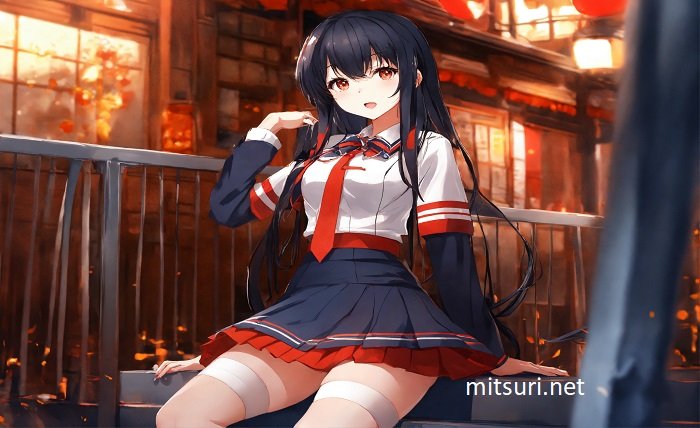Introduction
Within Japanese comics, yandere manga is a subgenre that delves into the intriguing and frequently intense dynamics of love, obsession, and psychological instability. “Yandere” is a phrase from Japanese culture that refers to characters who appear nice and kind at first but can suddenly turn violent and possessive toward their love relationships. This genre’s examination of nuanced emotions and moral quandaries has enthralled readers all around the world.
What is Yandere
Manga characters known as Yandere are characterized by their duality: while they appear to be kind and loving toward their romantic partners, they are actually driven by a strong infatuation that will stop at nothing to satisfy it. This type frequently shows up as possessiveness, jealousy, and a readiness to hurt people who they see as competitors in their relationship. Because Yandere characters straddle the border between crazy and love, they are interesting subjects for narrative investigation and psychological study.
Evolution of Yandere in Manga
Manga’s yandere characters have changed dramatically throughout the years, mirroring shifts in public perceptions of relationships, love, and mental health. Although contemporary interpretations frequently go deeper into the psychological causes and traumas that drive yandere behavior, early renderings tended to rely on melodramatic portrayals of obsessive love. The yandere archetype has been shaped and popularized by well-known manga stories, which highlight its adaptability and persistent appeal to readers.
Psychological Aspects of Yandere Characters
A complex interplay of psychological qualities, such as intense possessiveness, insecurity, and warped notions of love, are embodied by Yandere characters. Their compulsive tendencies are fueled by deep-seated emotional trauma or earlier experiences of rejection, which frequently give rise to their activities. Because they depict emotional conflicts and moral issues, yandere characters generate empathy and curiosity even in spite of their frequently hostile roles in storylines.
Themes Explored in Yandere Manga
Yandere manga delves into a variety of intriguing subjects, such as the nature of love and passion and the limits of morality and sanity. These stories frequently touch on themes of emotional dependency, psychological manipulation, and the results of unbridled desire. Readers are forced to confront painful realities about human relationships and the darker sides of romantic love through yandere manga’s intense character interactions and dramatic plot twists.
Popular Yandere Manga Series
Numerous manga series have received a great deal of praise for their examination of yandere themes and characters. Literary pieces such as “Future Diary” (Mirai Nikki), “School Days,” and “Elfen Lied” have captivated readers with their captivating stories and endearing yandere characters. These shows frequently combine psychological horror, suspense, and romance to produce gripping and memorable narratives.
Impact of Yandere Manga on Pop Culture
Beyond its literary merits, Yandere manga has influenced anime adaptations, video games, and fan art communities, among other facets of popular culture. The deep feelings and ethical dilemmas portrayed in yandere stories strike a chord with listeners all across the world, igniting conversations about mental health, ethics, and how romantic relationships are portrayed in the media. Another factor in the ongoing appeal and cultural relevance of yandere characters is the fan interpretations and adaptations.
Art and Visual Representation in Yandere Manga
The portrayal of yandere characters is greatly aided by visual storytelling, which highlights the characters’ dual nature through subtle body language, facial expressions, and symbolic imagery. In order to emphasize the sharp contrast between a yandere’s exterior appeal and inner agony, artists frequently use contrasting visual styles. Readers are drawn further into the psychological landscapes of the characters through the use of color palettes, panel compositions, and graphic techniques, which all serve to heighten the emotional impact of yandere manga.
Cultural and Societal Reflections in Yandere Manga
Yandere manga acts as a window into Japanese culture’s views on relationships, love, and mental health. The way yandere characters are portrayed exposes societal fears surrounding obsessive love and the fallout from emotional instability. These stories also provide light on more general issues like personal identity, society expectations, and the effects of trauma on interpersonal relationships. Through analyzing these contemplations, readers acquire a more profound comprehension of the cultural environments that mold yandere stories.
Conclusion
Finally, viewers are drawn in by yandere manga’s examination of love, obsession, and psychological depth. Readers are prompted to critically interact with topics of emotional upheaval and human desire as yandere manga questions traditional concepts of romance and morality through its dynamic characters and intriguing plots. The genre’s continuing appeal, in spite of its issues, highlights its capacity to speak to a wide range of viewers and spark discussion on the more sinister sides of interpersonal relationships.
FAQ
Why do people find yandere characters appealing?
Readers are drawn to Yandere characters because of their nuanced personalities, which combine deadly fixation with loving devotion. Because of their moral ambiguity and mental conflicts, they are frequently interesting subjects for psychological narrative.
Are yandere relationships healthy?
Manga portrays yandere relationships as being unhealthy, frequently marked by emotional instability, possessiveness, and manipulation. Relationships in real life should put mutual respect, trust, and emotional health first, even though they may be fascinating in fiction.

